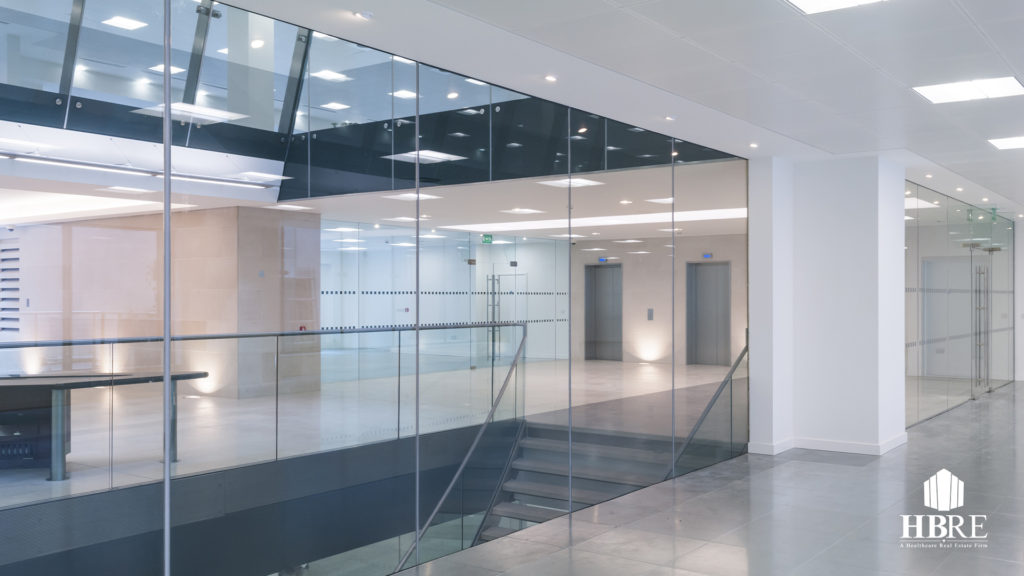While demand for office space wanes, lab space seems to be gaining attention. According to an article by WealthManagement.com, office landlords are thinking about transforming offices into life science spaces. This is especially the case for landlords in three specific biomedical research markets—San Diego, Boston-Cambridge, and San Francisco Bay Area. Some industry leaders believe that lab spaces in the Boston market will be highly sought-after properties for the next two to three years.
Another industry leader explains that demand, land constraints, and available space are the biggest players for determining whether a lab conversion would make sense in a given market. But lab space is not the only type of medical space that should apply these determining factors. These considerations are true for any medical space transaction. In addition to those elements, health professionals seeking medical real estate have to think about zoning, location factors, and healthcare-specific legislation. Similar to the medtail trend we’ve been experiencing, medical professionals of any specialty may want to take advantage of the office space market and consider if an office space has the right factors for their specific practice.
Logistics of Office-to-Medical Space Conversions
Office-to-medical space conversions are not as simple as purchasing or leasing an existing office and simply changing the buildout. Converting existing structures into a medical facility usually requires strategic planning and some help from a few business partners.
Before a commercial transaction is ever finalized, medical professionals should review their options with their medical real estate advisors. Healthcare real estate advisors have resources and experiences that will allow their medical clients to see all of their options in advance. They can discuss basics like location factors, legislation limitations, or the financial risks involved in undertaking an adaptive reuse project. Not every office property will be the best option for a medical team. Sometimes they will ultimately choose to build a facility from the ground up or engage in a build-to-suit transaction.
Structural Components
Due to the nature of a healthcare space and the type of equipment they use, medical facilities have several unique structural specifications. So, each medical professional’s specific plan for the existing office building will determine how much of its structure will need to change. Ceiling heights, for example, are a key factor in housing sizable medical equipment. In research spaces specifically, floor-to-ceiling heights should be around 14-16 feet. Depending on the architecture of a building, high, existing ceilings may be a must-have for a potential medical tenant.
Other structural needs can include specialized lining within the walls for specific types of rooms, such as lead lining for X-ray rooms. HVAC requirements also change based on the purpose of a space. For example, HVAC equipment for pharmacy or surgical spaces may need positive pressure. But a section of a medical space that serves patients with highly contagious diseases may need negative pressure. These are all details that an engineer should review with the medical professionals before moving into the space. Before a medical team ever officially selects their new space, they should understand what structural adjustments they might need to make and how much it could ultimately cost.
Medical Real Estate
As all of these facets suggest, medical real estate differs from other types of commercial real estate. Ceiling heights and HVAC units are just the beginning of a long list of idiosyncrasies involved in medical real estate. Medical professionals have significant decisions to make when it comes to occupying a new facility.
HBRE can help guide medical real estate clients through the process of finding the right location for their practice. HBRE’s experience with unique medical real estate transactions makes them a valuable resource to medical real estate clients. Medical professionals who have been considering moving into an existing office space can reach out with questions about a specific property—[email protected].
If you are interested in learning more about investing in commercial real estate, or if you have questions about buying, selling, or leasing a commercial property, please contact an HBRE advisor. Our team of experienced CRE professionals have the skills and insight to assist with all property transactions. To reach out to us directly, email [email protected] or call 615-564-4133.




